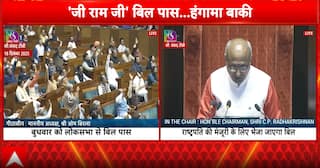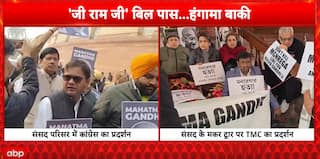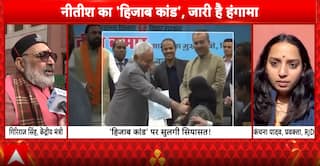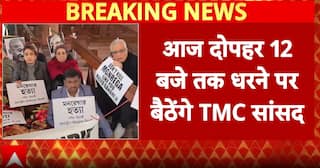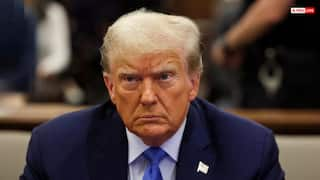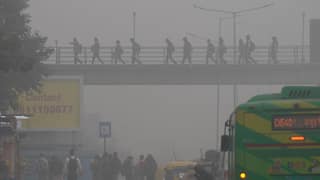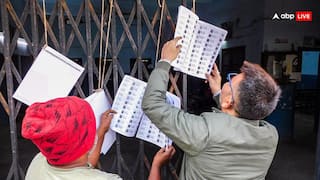G20 History: 1997 And 2008 — Two Financial Crises Behind The Making Of G20
G20 History: The Group of Twenty (G20) established itself as an important international forum in response to the two major financial crises that shook the world

The much awaited G20 Summit 2023 is set to begin Saturday under India’s Presidency. India is hosting the summit in New Delhi on September 9 and 10, and the whole city has undergone a makeover to ensure a successful and memorable summit for all. While the G20 Summit occupies prime status in global geopolitics today, the G20 itself is not very old, neither was the forum always given the importance it receives now. So let’s take a look at what happened for the world to start paying attention to the G20 and make it the significant global event that it is today.
The Group of Twenty (G20) established itself as an important international forum in response to the two major financial crises that shook the world. The Asian Financial Crisis of 1997-98, and the Global Financial Crisis of 2007-08 highlighted the need for an inclusive platform to address the economic challenges at the global level.
Asian Financial Crisis 1997-98
The Asian Financial Crisis of 1997-98 played an important role in laying the foundation for the formation of the G20. Triggered by currency devaluations in multiple Asian economies, the crisis disrupted the Asian and global financial systems.
The devaluation started in Thailand and spread across to Indonesia, South Korea, and Malaysia. Huge levels of foreign debt and weak financial sectors led to the crisis. The crisis began when Thailand’s government ended the local currency’s de facto peg to the US dollar. The move was taken after the government had already exhausted the majority of the country’s foreign exchange reserves trying to protect the currency against speculative pressure in the market.
Once Thailand stopped defending it’s domestic currency, Malaysia, the Philippines, and Indonesia followed suit and were compelled to submit their currencies to the market pressure. As a result, the crisis kept spreading across Asia and countries in the region saw their currencies devaluating at the same time. The crisis was a result of economic policies that provided a boost to investment, and at the same time, created increasing levels of debt, and risk, for financing needs.
These devaluations led to a major loss of investor confidence in the region. The Asian economies bore heavy costs of the crisis in the form of bankruptcies, economic contractions, unemployment, and political instability.
The Group of Seven (G7) was unable to contain or combat the financial crisis efficiently. The G7, made up of developed countries, couldn’t ensure an inclusive platform for Asian nations, which endured the primary losses caused by the crisis, to discuss and reach solutions to combat the financial crisis.
This made the world realise the need for an inclusive platform that allowed emerging and developed economies to come together to address global economic challenges.
Thus, the G20 was founded in 1999 as a forum for the finance ministers and central bank governors to discuss global economic and financial issues.
Global Financial Crisis 2007-08
It turned out that this was not sufficient, as proved by the Global Financial Crisis of 2007-08.
The crisis soon spread to the whole world and led to a severe global credit crunch, bank failures, and a plunge in economic activity and growth. It affected businesses and individuals altogether, resulting in mass layoffs, home foreclosures, and a hard recession for the global economy.
In the wake of the Global Financial Crisis of 2007-08, the G20 was upgraded to the level of Heads of State/Government to ensure the needed crisis coordination is done at the highest political level. This gave G20 it’s prominent status at the global level.
This happened because the 2007-08 financial crisis exposed the failure and inadequacy of existing global institutions in managing the complex and intricate issues faced by the world in the aftermath of such a crisis. And as such, the world again turned towards the G20 for solutions.
The G20 platform facilitated high-level discussions on stabilising strategies and encouraged member nations to avoid competitive currency devaluations and protectionist measures. The forum ensured the global economies collectively stayed committed to open markets and did not start a trade war in the aftermath of the crisis.
The G20 also established the Financial Stability Board (FSB) to supervise financial regulations and increase financial stability at the global level. Measures such as the Basel III were undertaken to strengthen the existing financial system. The Basel III was a tougher approach to banking regulations, compared to it’s predecessor Basel II.
Further, the G20 worked in tandem with the International Monetary Fund (IMF) to provide financial assistance to countries in distress. These measures helped provide stability and security to many struggling countries.
Ever since, the G20 has become a premier platform for an inclusive and comprehensive dialogue about the economy on a global scale. The G20 earlier largely focused on broad macroeconomic issues, but the forum has since widened it’s agenda to include trade, sustainable development, health, agriculture, energy, environment, climate change, and anti-corruption.
Thus, both these crises helped make G20 and give it the stature and order it enjoys today. The lessons learnt from these events helped the world understand the importance of an inclusive platform like G20 to bring together the world’s major economies, both advanced and struggling, to effectively address global economic challenges and ensure international cooperation.












